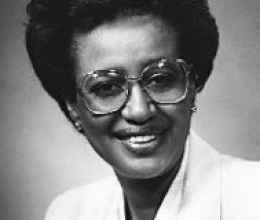In an effort to defend the rights of medical marijuana patients and caregivers throughout the state, the American Civil Liberties Union of Michigan sued the cities of Birmingham, Bloomfield Hills, and Livonia today on behalf of a registered medical marijuana patient with multiple sclerosis and her husband who fear arrest and prosecution by local officials if they grow or use medical marijuana in compliance with state law. In the past year, each of the cities adopted a local ordinance that completely bans medical marijuana — in direct violation of the Michigan Medical Marihuana Act.
“The people of Michigan voted overwhelmingly in support of compassionate care for patients like Linda Lott whose pain can be eased by the use of medical marijuana,” said Kary L. Moss, ACLU of Michigan executive director. "In a democracy, city commissions do not have the power to veto statewide ballot initiatives after they have been approved by the voters and enacted into law."
Linda Lott, 61, is a Birmingham resident who has suffered from multiple sclerosis for 28 years. Confined to a wheelchair and blind, Linda experiences painful and relentless muscle spasms that can no longer be controlled by conventional medications. Soon after Michigan enacted its medical marijuana law, Linda received approval from her doctor to register as a medical marijuana patient. Just a small amount of marijuana brings her instant relief from severe pain.
Despite the fact that medical marijuana helps thousands of patients like Linda, cities across Michigan have enacted local ordinances that completely ban medical marijuana in direct violation of state law. Birmingham, for example, has made it a crime for Linda to use or possess medical marijuana in her own home. Livonia prohibits Linda's husband, Robert Lott, from growing medical marijuana in a building he owns in the city, and Bloomfield Hills’ complete ban on medical marijuana prevents Linda from using medical marijuana at a private social club she belongs to there.
"When Michigan voters passed the medical marijuana ballot initiative, I was relieved. My doctor and I knew that it would help me fight the muscle spasms and painful symptoms of multiple sclerosis. What we didn’t realize is that it would be temporary,” said Linda. “Instead of relief, I now live in fear that I could be arrested by local officials for following state law.”
In 2008, the Michigan Medical Marihuana Act was approved on a statewide ballot. Sixty-three percent of voters approved the law statewide, including 71 percent of voters in Birmingham, 63 percent of voters in Livonia and 62 percent of voters in Bloomfield Hills. The ordinances, while not specifically mentioning medical marijuana, prohibit any activity that violates federal law. Because medical marijuana is still technically illegal under federal law, the cities used this terminology to ban medical marijuana. The federal government, however, does not prosecute patients and caregivers who comply with their states' medical marijuana laws, and the Michigan Medical Marihuana Act specifically states that registered patients and their caregivers "shall not be subject to arrest, prosecution, or penalty in any manner" for growing, possessing, or using medical marijuana.
The ACLU's lawsuit asks that the city ordinances be declared invalid and unenforceable against medical marijuana patients and caregivers who comply with the state law.
In addition to Moss, the Lotts are represented by ACLU of Michigan Legal Director Michael J. Steinberg, ACLU of Michigan staff attorney Dan Korobkin, and ACLU of Michigan Cooperating Attorneys Andrew Nickelhoff and Jerold Lax.
NEW REPORT
MI's Parental Consent Law for Abortion Harms Young People


